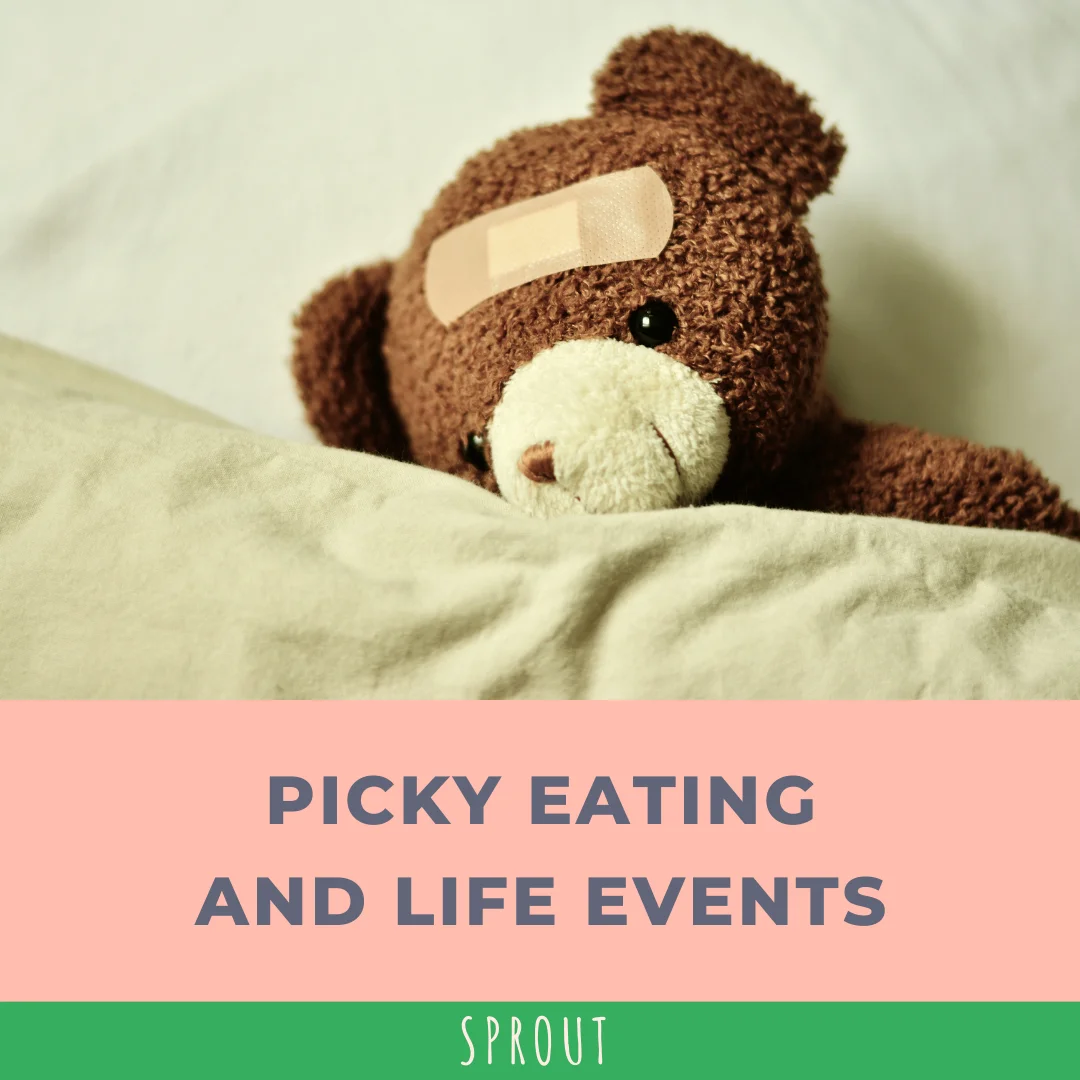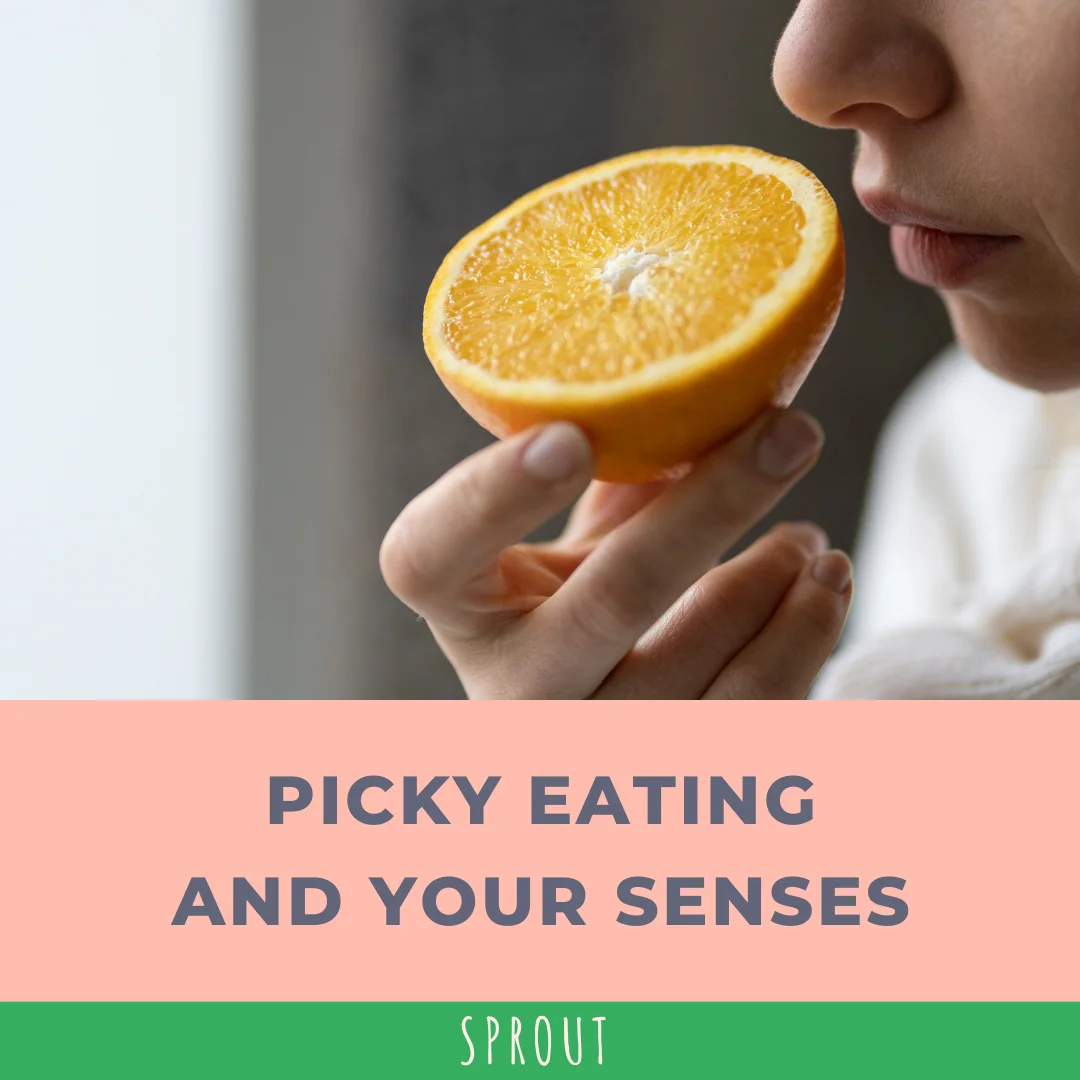Introduction
When looking into fussy eating and trying to make sense of your child’s eating habits, you may well have come across the idea of “neophobia”. But what exactly is neophobia, and what does it mean for your child? In this blog post we’ll take a look at the meaning of “neophobia” and some theories why it happens.
What does it mean?
“Food neophobia” is defined as the fear, or avoidance, of new foods. “Neo” = new, and “phobia” = fear. It is a separate, but related, concept to fussy, or picky, eating which also includes the avoidance of familiar foods.
So, if your child is turning away from anything new, looks anxious if you ask them to try something, or seems hypervigilant to any changes in how their food looks - these behaviours may all be partly explained by “neophobia”.
Is it genetic?
You’re probably wondering why this happens, right? Our eating behaviours and preferences are so often attributed to our upbringing, environment, and parenting. While the environment does play a role it’s important that we don’t forget how much of our eating patterns come from within!!
Researchers carried out a study with adult family members in Finland and adult twins in the UK and found that about two thirds of the variation of neophobia was due to genetics. Another study explored the genetic influence on both neophobia and fussy eating, and showed that genetics plays an even higher role in the development of neophobia than for fussy eating.
So, if you’ve noticed any familial traits, or you think your child’s eating preferences are reminiscent of your aunt, uncle, or long-lost cousin - it may not be your imagination!
Keeping safe
Why does it make any sense for us to avoid new foods? Well, the theory goes that neophobia evolved as a safety mechanism to prevent toddlers from consuming poisonous plants in the wild. If you think back to our ancestors’ days of foraging in the wild, if they came across an unfamiliar plant it was probably safest not to try it! And this holds true today!
As adults, we know that the foods on our table, on our shelves, and in our supermarkets are “safe” - but this may not seem obvious to a two-year old.
It is thought that this phase kicks in in toddlerhood because this is when children start to walk, and they would have been venturing further from their parents, and eating more independently.
Toddler development
While this theory is likely a big part of the picture - there are a whole host of reasons why eating may change at this toddler stage. When your little one was a baby, their main jobs were to eat, sleep, and grow - they needed a lot of fuel to triple their weight in the first year! This rate of growth significantly slows down (thankfully!!), and their job description diversifies. Their appetite and their interest in eating may simply reflect this change - although they look bigger, they may actually need to eat less often than they did before. They are also developing their identity and figuring out who they are - so it’s expected that they’ll start expressing their preferences and letting you know what they like and what they don’t!
Conclusion
To sum up, “neophobia” is often a big part of what we call “fussy” or “picky” eating - and it specifically refers to the avoidance of new foods. If you’re wondering where things have gone wrong - remember that this is often a typical part of development, and it’s largely influenced by our genes.
References
Dovey, T. M., Staples, P. A., Gibson, E. L., & Halford, J. C. (2008). Food neophobia and ‘picky/fussy’eating in children: a review . Appetite, 50(2-3), 181-193.
Knaapila, A., Tuorila, H., Silventoinen, K., Keskitalo, K., Kallela, M., Wessman, M., ... & Perola, M. (2007). Food neophobia shows heritable variation in humans . Physiology & behavior, 91(5), 573-578.
Smith, A. D., Herle, M., Fildes, A., Cooke, L., Steinsbekk, S., & Llewellyn, C. H. (2017). Food fussiness and food neophobia share a common etiology in early childhood . Journal of Child Psychology and Psychiatry, 58(2), 189-196.

